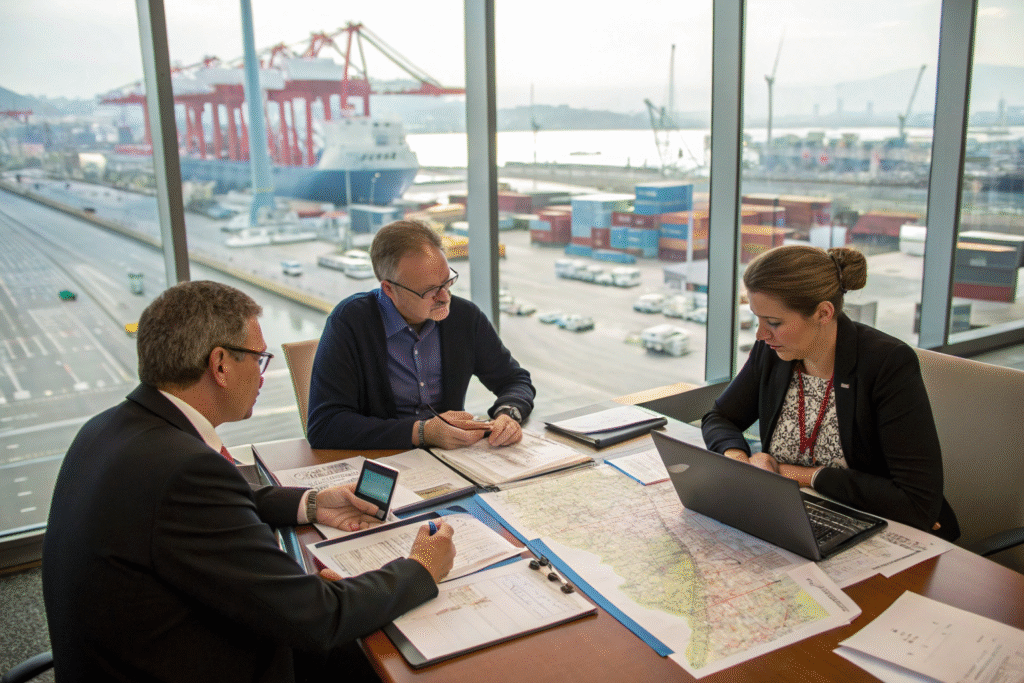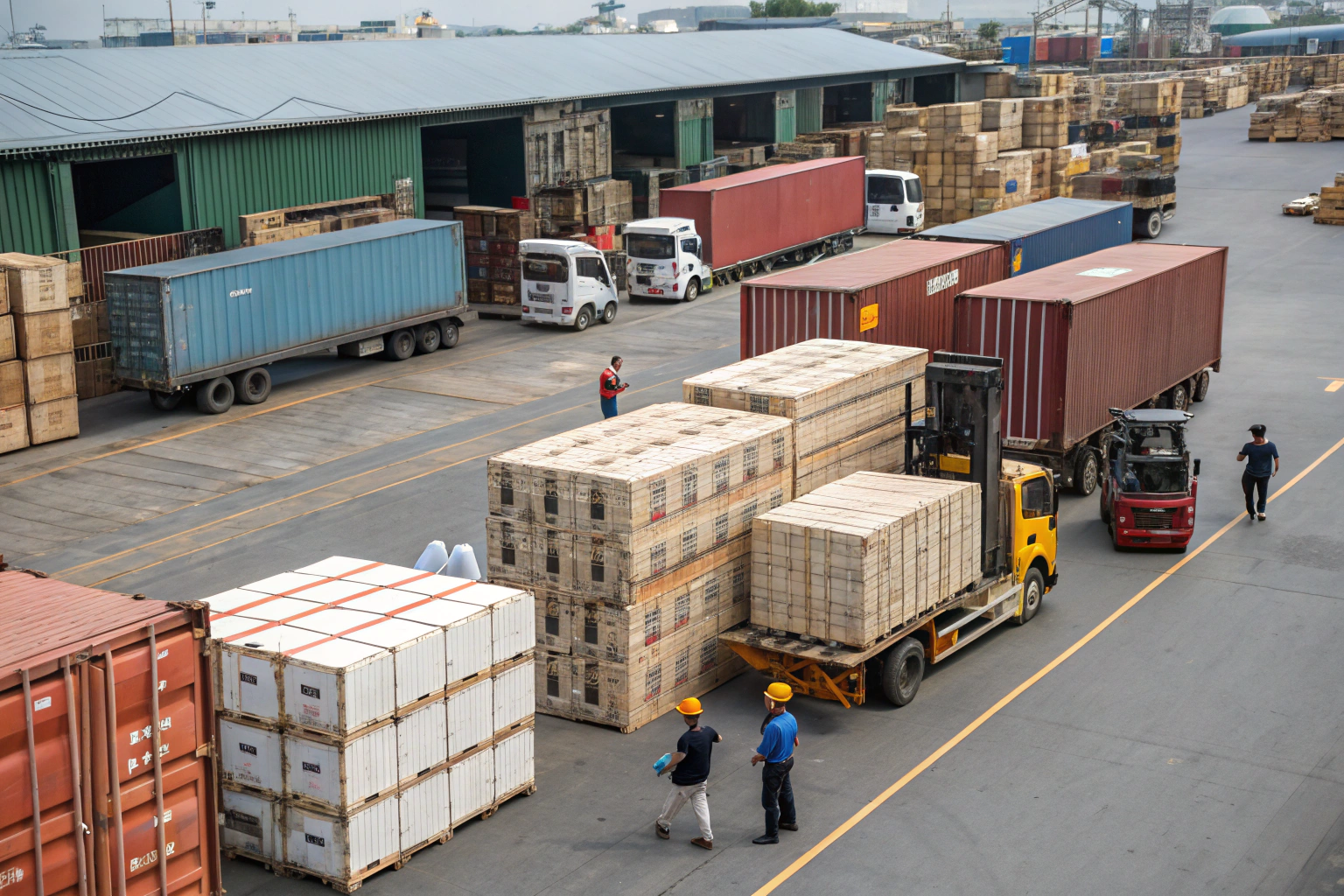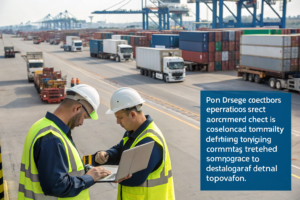Managing international shipments is complex. You’re dealing with multiple transport modes, customs requirements, and documentation—all while trying to deliver goods on time and under budget. That’s where freight forwarders come in. But are they always the right choice?
Freight forwarders offer expertise, efficiency, and risk mitigation—but they also come with added costs, potential miscommunication, and varying levels of service quality.
Whether you’re a seasoned importer or just starting, understanding the trade-offs of working with a freight forwarder will help you make smarter shipping decisions.
What are the main advantages of working with a freight forwarder?
Freight forwarders are logistics experts that streamline complex shipping processes.
They provide end-to-end coordination, customs expertise, and access to global carrier networks—all designed to simplify your shipping.
Many importers rely on forwarders to turn disorganized shipping into a clear, trackable process.

How do freight forwarders save you time?
Freight forwarders manage the entire process—from booking vessels to customs clearance—so you don’t have to coordinate with separate trucking companies, airlines, ocean carriers, or government agencies.
With just one point of contact, your shipment can move from a Chinese factory to your U.S. warehouse smoothly. Platforms like Flexport even offer real-time dashboards, eliminating the back-and-forth with multiple providers.
How do they reduce shipping risks?
From missed vessel cutoffs to lost paperwork, small mistakes can cause big losses. Forwarders reduce risk by verifying documentation, tracking vessels, and handling issues like cargo insurance.
They also offer guidance on HS codes, Incoterms, and packaging standards—helping you avoid fines, demurrage charges or customs holds.
What are the cost-related benefits and trade-offs?
While forwarders may charge a management fee, they often save you money in the long run.
They negotiate better carrier rates, avoid costly delays, and help optimize shipping methods—but they’re not always the cheapest upfront.
Understanding the true cost picture means looking beyond the invoice.

Do forwarders offer better rates than booking directly?
Yes—forwarders book in volume and maintain partnerships with shipping lines, airlines, and warehouses. This means they often secure contracted freight rates, especially for popular China–USA routes.
They also help consolidate partial loads into FCL containers or multi-client groupage shipments, which lowers per-unit shipping costs.
Are there hidden or unexpected charges?
While reputable forwarders provide detailed quotes, some may exclude port charges, destination fees, or inspection costs. That’s why it’s essential to choose a forwarder that clearly itemizes all charges and explains terms like DDP, FOB, or CIF.
Cheap upfront rates may lead to expensive surprises later—especially with customs delays or last-mile delivery confusion.
What are the potential downsides or limitations?
While freight forwarders offer convenience, they’re not always a perfect fit for every business or shipment.
Common challenges include added costs, inconsistent service quality, and limited control over real-time decisions.
Like any outsourcing decision, freight forwarding comes with trade-offs.

Can forwarders create communication bottlenecks?
Yes. Especially if your forwarder is slow to respond or lacks multilingual staff. Poor communication may cause shipment updates to arrive late—or not at all. It’s important to work with a forwarder that offers proactive communication via platforms like WhatsApp Business or dedicated client portals.
Some smaller forwarders may rely heavily on agents, making issue resolution slower.
What if the forwarder lacks experience on your route?
Not all forwarders are equal. Some specialize in regional trade lanes or specific industries. If your provider lacks experience shipping from Yiwu to Texas, for example, they may overlook important compliance checks.
Before choosing a partner, always ask about their past experience with your product category, destination, and delivery timeline.
When should you manage shipping without a freight forwarder?
For some importers, it might make sense to ship directly—at least for smaller orders or routine lanes.
Direct booking can be cheaper and faster when you have the internal logistics knowledge, but it comes with more risk and admin work.
Self-managed shipping isn’t for everyone, but it works for some.

When does direct shipping make sense?
If your shipment is small, under the $800 U.S. de minimis threshold, or handled via a familiar courier like DHL eCommerce or UPS, you might save time and cost by bypassing a forwarder.
This is especially true for stable, repeat shipments with clear customs history and low documentation requirements.
What are the risks of skipping a freight forwarder?
Handling shipping yourself means managing every detail—carrier booking, document preparation, export declarations, and customs entry. One mistake can lead to seizures, delays, or unexpected fees.
For businesses shipping high-value, multi-container, or seasonal goods, the cost of an error usually outweighs the savings.
Conclusion
Freight forwarders offer valuable expertise, coordination, and risk reduction—making them essential partners for many importers. But they also come with added cost and limitations that should be weighed based on your shipment size, frequency, and in-house capabilities. At GeeseCargo, we help clients navigate this decision and tailor freight solutions that match their business needs—not just logistics plans. Whether you need full service or a custom hybrid model, the key is to choose based on value—not just price.









